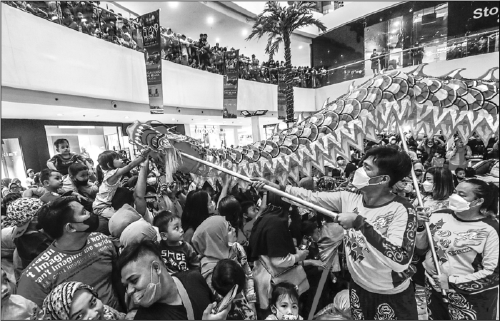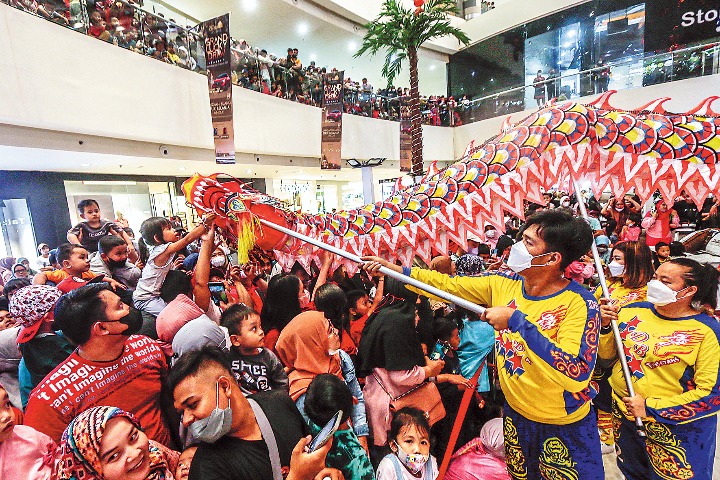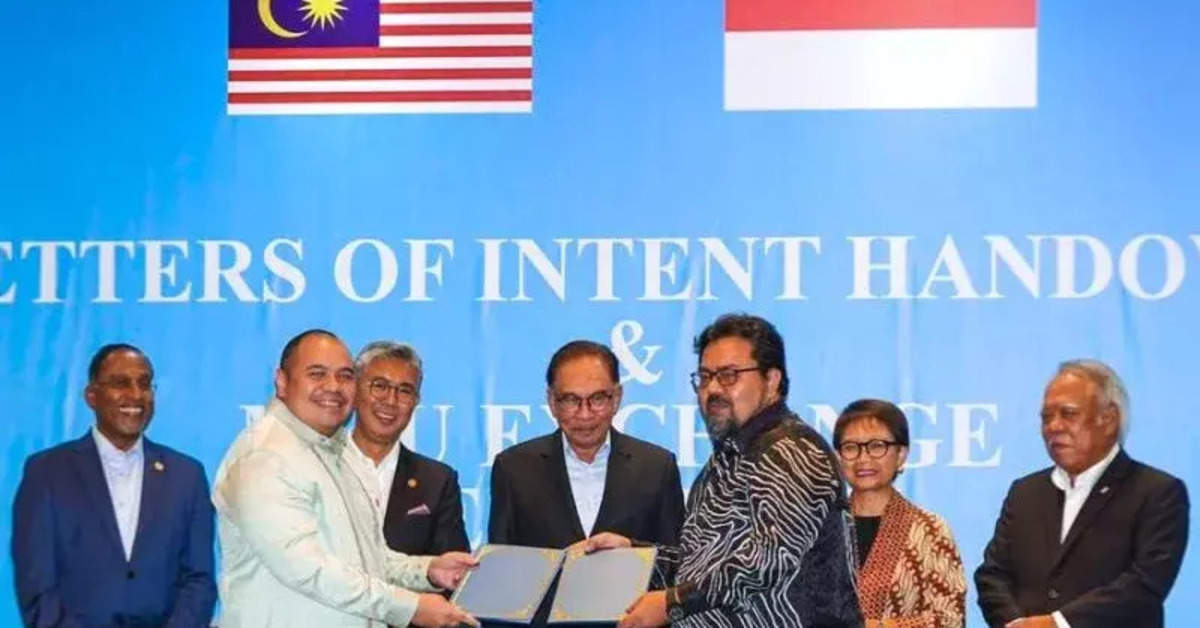This year, with festivities hopping along, celebrations bring communities together
Indonesians have welcomed the return of lively festivities for Chinese New Year after three years of subdued celebrations because of the pandemic, with everything from presidential greetings to traditional lion dances.
The district of Glodok, known as Jakarta”s Chinatown, was especially busy with Indonesians flocking to the area to buy lanterns, new clothes, incense and fruit baskets for the Year of the Rabbit. Chinese Indonesians held family reunions and gave red envelopes, or angpao, to family and friends.
Indonesian President Joko Widodo sent his greetings to the ethnic Chinese community. On social media, Widodo wrote: “Times changed, years passed, and challenges may change. But, one thing that should always stay is hope that tomorrow will be a happier, more prosperous and more developed time.”
Chinese New Year, known locally as Imlek, is among the major festivals in the multiethnic nation. Ethnic Chinese account for roughly 5 percent of Indonesia’s of 273 million population. Since the first day of the Chinese New Year fell on Jan 22, a Sunday, Jan 23 was declared a public holiday in Indonesia.
Siang Hadi Widjaja, a Jakarta-based business owner, welcomed the return of the more “upbeat” Chinese New Year celebrations. He said the celebrations are good for the economy as they have boosted demand for food, souvenirs and home decorations. Performances like the barongsai (lion dance) parade also attract tourists.
“So economically, Imlek helps lots of people,” Widjaja said.
At Jakarta’s Borobudur Intercontinental Hotel, a lion dance and an orchestra that showcases the guzheng, a Chinese stringed instrument, were held last weekend. Also, members of the Indonesian Kong Hu Cu Society held a ritual at Taman Mini Indonesia Indah. Visitors, many of whom came from outside Jakarta, were among those watching the ceremony.
In the city of Merauke in the eastern province of Papua, a barongsai troupe paraded around the city and drew crowds. The Chinese community is proud of the harmonious life in Merauke while leaders of indigenous groups in Papua said Chinese cultural arts are part of their daily lives. Most performers in the troupe are indigenous Papuans.
‘In Diversity We are One’
Church services were held across the country, with the homily delivered in Mandarin and the Holy Mass concluded with the distribution of oranges among the churchgoers.
Noviana Tjokrowiredjo, secretary of the Association of Chinese Language Teachers for Banten Province in western Java, said that she is happy that Imlek celebrations have been widely celebrated in Indonesia.
“I am happy. We feel even stronger that we Chinese feel that as Indonesians we have a place here in this country,” Tjokrowiredjo said. She cited Indonesia’s national motto Bhineka Tunggal Ika (In Diversity We are One) and said that this is not an empty slogan but a reality.
Celebrating Imlek is significant for the Chinese-Indonesian community as public celebrations of Imlek had been banned during the rule of Suharto last century.
Tedy Yusuf, a retired army officer and former member of parliament, established the Indonesian-Chinese Social Association to serve as a platform for the Chinese-Indonesian community to campaign against discrimination.
The campaign led to the drafting and enforcement of laws that allow ethnic Chinese to hold senior government positions as well as the declaration of Imlek as a national holiday and the establishment of Chinese schools and cultural centers.
“I feel that the situation is getting better,” Yusuf said.
Tjokrowiredjo said that there is also a rising demand for Chinese-language teachers in Indonesia as more companies are looking for workers with skills in the language.
“As China is now one of the biggest economies, demand for people with Chinese-language skills is continuing to increase globally,” she said.
Tjokrowiredjo said that before the pandemic, the Association of Chinese Language Teachers would send 10 students each year to study in China. After their graduation, these students returned to teach Chinese in schools.
On the economy, Widjaja sees stronger cooperation between China and Indonesia as China is a major export market and one of the biggest investors in Indonesia.
Contact the writers at prime@chinadailyapac.com.

Leonardus Jegho is a freelance journalist for China Daily.




































